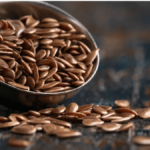Pineapple is a tropical fruit that tastes great and is good for you in many ways. People have loved it for hundreds of years.
Not only is pineapple tasty, but it is also very healthy. Its bright yellow color, sweet and sour taste, and juicy insides make it a great choice.
We’ll learn in depth about the health benefits of pineapple, as well as its nutritional value and the ways it might be bad for some people.
Health Benefits of Pineapple
1. This Fruit is Rich in Antioxidants
Pineapple has a lot of flavonoids, vitamin C, and vitamin B1 that are good for you. These antioxidants help your body get rid of those dangerous free radicals. They also lower your stress levels and lower your risk of getting cancer, heart disease, and old age faster than you should.
2. Pineapple Supports Immune Function
Pineapple has a lot of vitamin C, which makes your defense system stronger. In the Annals of Nutrition and Metabolism study, vitamin C boosts the efficiency of phagocytes, a type of white blood cell that engulfs harmful particles and pathogens. After the intruders are apprehended, they undergo enzymatic digestion and neutralization.
3. Aids Digestion
Bromelain is an enzyme that is found in pineapple that helps your body break down proteins better. This can help your body absorb protein better and keep you from having issues like gas, bloating, and not going to the bathroom enough.
4. It has Anti-inflammatory Properties
Pineapple has an enzyme called bromelain that can also help reduce inflammation. That bromelain might help lower swelling and inflammation was found in the Journal of Pharmaceutical Biology. This could be helpful for people with arthritis and accidents.
5. Pineapple is Good for Bone Health
Manganese is a mineral that is found in pineapple that is good for your bones. Because manganese keeps your bones healthy and strong, you don’t have to worry about getting osteoporosis. This study from the Journal of Nutrition and Metabolism also talks about how manganese helps your bones stay strong and thick.
Nutritional Profile of Pineapple
One cup (165 grams) of fresh pineapple contains the following nutrients:
- Calories: 82.5
- Carbohydrates: 21.6 grams
- Fiber: 2.3 grams
- Protein: 0.9 grams
- Vitamin C: 78.9 milligrams (88% of the Daily Value)
- Manganese: 1.5 milligrams (76% of the Daily Value)
- Vitamin B6: 0.1 milligrams (6% of the Daily Value)
- Copper: 0.1 milligrams (6% of the Daily Value)
- Folate: 18.8 micrograms (5% of the Daily Value)
Pineapple is also a good source of vitamins A and K, as well as potassium and magnesium.
Downsides of Pineapple for Some People
Even though pineapple is good for you in many ways, there are some things you should know about the bad effects it might have.
1. Allergic Reactions
Some people might be allergic to pineapple, which could lead to a rash, stings, or trouble breathing of some kind. 5 of the 372 kids in the 2018 Australian SchoolNuts study said they were allergic to pineapple, and four of them had “likely IgE-mediated” responses.
2. Interactions with Certain Medications
The bromelain enzyme in pineapple can interact with certain medications, including:
- Blood thinners (anticoagulants)
- Antibiotics
- Insomnia medications
- Anticancer drugs
If you are taking any medications, it’s best to consult with your healthcare provider before consuming large amounts of pineapple or bromelain supplements.
3. Digestive Issues
Pineapple is good for digestion in general, but it might not be good for you if you have gastritis or ulcers. According to WebMD, too much bromelain can make you sick or give you stomach pain.
4. Tooth Erosion
The acid in pineapple can hurt your teeth if you eat too much of it over time. Acidic foods and drinks, including citrus fruits like lemons, limes, oranges, and pineapples, can wear down tooth enamel and leave teeth more vulnerable to cavities.
Expert Opinions and Tips
A certified dietitian and nutritionist named Tami J. Lyon says that pineapple is a great way to get that vitamin C. Vitamin C is very important for keeping your skin healthy and beautiful and for keeping your immune system strong.
If you already have stomach problems, you should be careful not to eat too much pineapple because it is very acidic and can make you feel sick.
The bromelain in pineapple can help most people with digestion, says Dr. Michael Johnson, a gastroenterologist at the Wellness Digestive Center.
However, people who have gastritis or a gastric ulcer should be careful and not eat too much pineapple. To keep from getting upset, it’s best to eat it with other things.
To get the most good things from pineapple and the fewest bad things, follow these tips:
- If pineapple makes your stomach hurt, eat less of it or mix it with other foods to help your body digest it better.
- Don’t take pineapple or bromelain pills if you are already on medicine. Talk to your doctor first.
- If you eat pineapple and then rinse your mouth with water, the pH will be balanced and tooth decay will be less likely.
- If you are allergic to pineapple, don’t eat any of them and see a doctor if you have a bad response.
The Bottom Line
There are many good things for your body in pineapple, a fruit that grows in warm areas and tastes great. It is very good for your health because it has a lot of vitamins and digestive enzymes.
But there are some things you should remember. Pineapple may cause severe reactions in some people or may not work well with some medicines. It may also make some people sick to their stomach.
Just make sure you don’t eat too much pineapple and follow the advice of experts to get all the good stuff without any of the bad.
Frequently Ask Questions
Can pineapple help with weight loss?
Pineapple is a good low-calorie and high-fiber food that might make you feel full, but there isn’t strong evidence that it helps you lose weight. Even so, if you’re trying to keep your weight down, it can be a good addition to a healthy diet.
Is it safe to consume pineapple during pregnancy?
While pregnant, eating pineapple in small amounts is usually fine. However, some experts say that if you eat too much pineapple with bromelain, it could cause problems like uterine contractions. You should talk to your doctor about how much pineapple is safe for you.
Can pineapple help with muscle recovery after exercise?
Bromelain is an enzyme that can be found in pineapple. Some studies show that it may help with swelling and muscle pain after a hard workout. We still don’t know how well it works or how much you should take, though.
Is it true that pineapple can cause miscarriage?
Scientists have not found any proof that eating pineapple can directly cause a miscarriage. But some doctors say that pregnant women shouldn’t eat too much pineapple because bromelain can make it harder for the uterus to contract.
Can pineapple interfere with blood clotting?
If you eat a lot of pineapple or take bromelain pills, it may affect how well your blood clots and make you more likely to bleed, especially if you are already taking medicines that thin your blood. Being taken. Before taking pineapple or bromelain supplements, you should talk to your doctor if you have a bleeding problem or are taking medicines that thin the blood.
Is it safe to consume pineapple for people with diabetes?
There are natural sugars in pineapple, but it has a low glycemic index, which means it won’t make your blood sugar rise quickly. If you have diabetes, just write down what you eat and talk to a doctor or chef to make sure it fits with your plan.
Can pineapple cause kidney stones?
There is not a lot of proof that eating pineapple will give you kidney stones. If you have had kidney stones before, though, you should cut back on pineapple because it has a lot of oxalate, which can make some types of kidney stones worse.
Is it better to eat fresh or canned pineapple?
Most people think that fresh pineapple is better than canned pineapple because some nutrients are lost when it is canned. Keep calm, though. Canned pineapple still has some good things in it, and it can be used instead of fresh pineapple when you can’t find any.
Can pineapple help with arthritis pain?
A substance found in pineapple called bromelain has been linked in some studies to having anti-inflammatory qualities that might help with arthritis pain and swelling. There is still more work to be done to be sure and figure out the right amount to take.
Is it safe to consume pineapple for people with gastroesophageal reflux disease (GERD)?
For most people, pineapple is fine, but for those with GERD or acid reflux, it might make things worse. If you have GERD, you might want to cut back on pineapple or talk to your doctor about how much you should eat.

















